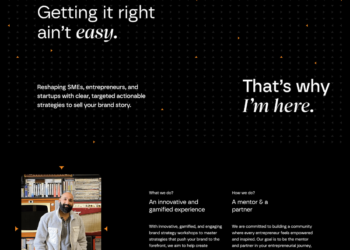The Graph has just announced the early access launch of Geo Genesis, a new Web3 browser and knowledge graph application that puts information-sharing front and center. Instead of focusing solely on digital assets, Geo Genesis gives communities the tools to collaborate on knowledge.
The platform aims to show how users can work together to gather, verify, and shape fast-moving stories. By doing this, The Graph hopes to show that blockchain infrastructure can support fair community collaboration.
Inside Geo Genesis
At the core of Geo Genesis is a feature called “Spaces”. Each Space is like a shared workspace for a specific topic where users can submit ideas, fact check and refine information as needed. These Spaces use GRC-20 data standards so everyone can see when new content was added, who added it and how it might have changed over time.
Right now, Editors are using these Spaces to organize Crypto News stories so the wider community can watch how the content is governed. Over time, it’s likely that more Spaces will appear on different subjects, and each one can set up its own rules about what gets posted and how decisions are made.

Knowledge vs. Assets
Geo Genesis stands out because it treats knowledge as an essential resource rather than focusing on tokens, NFTs, or other digital assets. Many blockchain projects concentrate on speculation or trading, but The Graph envisions a decentralized approach to gathering facts and information.
Geo Genesis invites anyone to pool their expertise and verify what’s being posted. This could encourage a more active form of participation, where people feel responsible for making sure the information is trustworthy. As more users and groups join, Geo Genesis could grow into a larger network of knowledge Spaces, each shaped by the people who use it.
Governance with Aragon OSx
A big part of this is the governance framework provided by Aragon OSx. In early access, there are two main roles: Editors who vote on proposals and guide the overall direction of the content, and Members who submit new information.
In the future, these roles might be expanded or adapted depending on the community’s goals. For example, if a Space is about scientific research, it might use stricter rules to ensure accuracy. If a Space is about live events, the voting process might be faster to keep up with breaking news. This flexibility reduces misinformation by letting the community decide what works best for them and making every decision visible to everyone involved.
With the release of Geo Genesis, The Graph shows that Web3 technology can be about more than just financial exchanges. By giving people a way to build and oversee knowledge together, it points to a future where communities hold the reins.
Editor’s note: Written with the assistance of AI – Edited and fact-checked by Jason Newey.





















































































Noodlemagazine I am truly thankful to the owner of this web site who has shared this fantastic piece of writing at at this place.
I was examining some of your blog posts on this internet site and I believe this website is really informative! Continue putting up.
I real thankful to find this website on bing, just what I was looking for : D as well saved to bookmarks.
Very efficiently written story. It will be valuable to anyone who employess it, including yours truly :). Keep up the good work – i will definitely read more posts.
A lot of of what you state happens to be supprisingly appropriate and that makes me ponder why I hadn’t looked at this in this light before. Your article truly did turn the light on for me personally as far as this issue goes. Nevertheless at this time there is actually just one issue I am not necessarily too comfortable with and while I try to reconcile that with the central theme of your position, permit me observe just what all the rest of the readers have to say.Very well done.
Purdentix review
I love how user-friendly and intuitive everything feels.
The content is engaging and well-structured, keeping visitors interested.
It provides an excellent user experience from start to finish.
It provides an excellent user experience from start to finish.
This site truly stands out as a great example of quality web design and performance.
I carry on listening to the reports lecture about getting free online grant applications so I have been looking around for the finest site to get one. Could you advise me please, where could i find some?
You actually make it appear so easy together with your presentation but I to find this topic to be actually something which I think I’d by no means understand. It kind of feels too complicated and very vast for me. I am taking a look forward in your next post, I?¦ll attempt to get the hang of it!
where to buy cheap clomid no prescription says: cheap clomiphene pills can i buy generic clomiphene tablets can you buy clomiphene prices where to buy generic clomid where to get clomid where to buy generic clomiphene pill
More posts like this would create the online play more useful.
More posts like this would persuade the online play more useful.
zithromax tablet – zithromax online order generic metronidazole 400mg
buy generic semaglutide for sale – semaglutide 14 mg pill cyproheptadine 4 mg tablet
buy generic motilium – order sumycin buy cyclobenzaprine generic
purchase augmentin online cheap – at bio info acillin cost
nexium 20mg price – anexamate.com purchase nexium for sale
coumadin over the counter – anticoagulant how to get cozaar without a prescription
I am impressed with this website , really I am a fan.
order deltasone 20mg generic – inflammatory bowel diseases order deltasone online
ed pills no prescription – non prescription erection pills red ed pill
order amoxicillin pills – buy generic amoxil order amoxicillin pills
diflucan 100mg without prescription – flucoan fluconazole pills
cenforce ca – https://cenforcers.com/# cenforce cheap
tadalafil tablets erectafil 20 – https://ciltadgn.com/# tadalafil citrate powder
how long i have to wait to take tadalafil after antifugal – https://strongtadafl.com/# cialis online without a prescription
cost zantac 150mg – order zantac sale zantac 150mg price
cheap viagra canada pharmacy – strong vpls herbal viagra for sale in ireland
This is a question which is virtually to my fundamentals… Myriad thanks! Quite where can I upon the phone details for questions? https://gnolvade.com/
More content pieces like this would make the web better. https://ursxdol.com/clomid-for-sale-50-mg/
I couldn’t resist commenting. Well written! https://prohnrg.com/
Perfect work you have done, this web site is really cool with fantastic info .
Facts blog you have here.. It’s hard to assign great worth belles-lettres like yours these days. I really recognize individuals like you! Rent vigilance!! https://aranitidine.com/fr/cialis-super-active/
More articles like this would pretence of the blogosphere richer. https://ondactone.com/spironolactone/
I am actually delighted to gleam at this blog posts which consists of tons of profitable facts, thanks towards providing such data.
levofloxacin order online
Would love to constantly get updated outstanding blog! .
This is the gentle of writing I rightly appreciate. http://sols9.com/batheo/Forum/User-Fjpkyz
I love it when people come together and share opinions, great blog, keep it up.
Your place is valueble for me. Thanks!…
Hi, I think your site might be having browser compatibility issues. When I look at your website in Safari, it looks fine but when opening in Internet Explorer, it has some overlapping. I just wanted to give you a quick heads up! Other then that, fantastic blog!
Dead composed subject matter, thankyou for selective information.
I like this site very much, Its a very nice billet to read and obtain information. “Acceptance of dissent is the fundamental requirement of a free society.” by Richard Royster.
forxiga 10 mg over the counter – on this site dapagliflozin 10 mg sale
xenical usa – https://asacostat.com/ purchase orlistat pills